Search
Search results
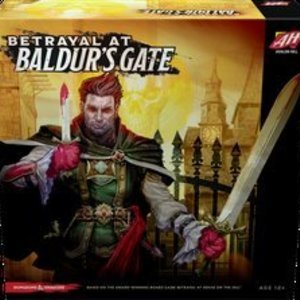
Betrayal at Baldur's Gate
Tabletop Game
Description from the publisher: The shadow of Bhaal has come over Baldur's Gate, summoning...
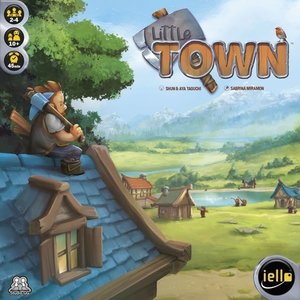
Little Town
Tabletop Game
In Little Town, you lead a team of architects and must dispatch workers to the town, collect...
Boardgames 2017Boardgames CityBuildingGames WorkerPlacementGames
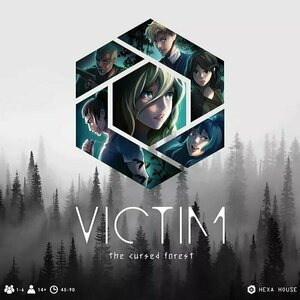
Victim: The Cursed Forest
Tabletop Game
Victim, a horror board game that lets players help each other to find a way out by cooperatively...
Dean Gregory (18 KP) rated Hive in Tabletop Games
May 25, 2019 (Updated May 25, 2019)
Perfect information strategy (4 more)
Portable
High quality pieces
Easy to learn with plenty of replay value
Can be played on relatively small tables
Potentially biased towards whoever starts first (1 more)
Limited defensive tactics without certain add-ons
A Modern Chess
Hive is a fine example of a game that is easy to learn, but difficult to master. The premise is simple - use your bugs to surround your opponents queen bee while preventing them from doing the same to you. The playing space, referred to as the Hive, is defined by the pieces themselves, without the need for a board.
I've come the think of Hive as Chess Lite. This is because it has a similar sort of depth, in that the key to success lies in the player's understanding of each bug's strengths and weaknesses in a given situation. Also, one of the focal points of the game is trapping a particularly vulnerable piece - the king in Chess, and the queen bee in Hive.
One of the best aspects of the game is how it adapts to the space it is played in. Players have a degree of control over how the Hive grows as they place their pieces and move them around. This means if you play on a small table, you can easily make the game fit. However, some games I have played have ended up getting a little out of control and outgrowing the playing space, which ruled out some moves available.
There is a travel version of the game available in which the pieces are about a third of the size, but even in the full size version, it lends itself to travel fairly well. Both versions of the game come with handy travel bags which take up little space, so for the gamer on the go, this one would certainly suit your collection.
One minor gripe I have is that the way the pieces move around and affect each other leads to only a handful of defensive strategy, which means that particularly for more experienced players, the game can be heavily skewed in favour of whoever goes first. However if you're willing to invest in it a little more, there are a few add-on pieces available that can mitigate this somewhat, while also adding more spice to the game.
Overall, this has proved to be among my favourite and most endearing games I own. It is endlessly replayable, the components are a joy to hold and use, it appeals to both my casual gamer friends as well as those who enjoy a deeper strategy experience, and while it offers plenty as a base game, the add-ons really work as wildcards to change things up.
Highly recommended.
I've come the think of Hive as Chess Lite. This is because it has a similar sort of depth, in that the key to success lies in the player's understanding of each bug's strengths and weaknesses in a given situation. Also, one of the focal points of the game is trapping a particularly vulnerable piece - the king in Chess, and the queen bee in Hive.
One of the best aspects of the game is how it adapts to the space it is played in. Players have a degree of control over how the Hive grows as they place their pieces and move them around. This means if you play on a small table, you can easily make the game fit. However, some games I have played have ended up getting a little out of control and outgrowing the playing space, which ruled out some moves available.
There is a travel version of the game available in which the pieces are about a third of the size, but even in the full size version, it lends itself to travel fairly well. Both versions of the game come with handy travel bags which take up little space, so for the gamer on the go, this one would certainly suit your collection.
One minor gripe I have is that the way the pieces move around and affect each other leads to only a handful of defensive strategy, which means that particularly for more experienced players, the game can be heavily skewed in favour of whoever goes first. However if you're willing to invest in it a little more, there are a few add-on pieces available that can mitigate this somewhat, while also adding more spice to the game.
Overall, this has proved to be among my favourite and most endearing games I own. It is endlessly replayable, the components are a joy to hold and use, it appeals to both my casual gamer friends as well as those who enjoy a deeper strategy experience, and while it offers plenty as a base game, the add-ons really work as wildcards to change things up.
Highly recommended.
Purple Phoenix Games (2266 KP) rated Survive: Escape from Atlantis! in Tabletop Games
Sep 4, 2019 (Updated Jul 2, 2020)
I have never been on a sinking anything. Sure, I have flipped over kayaks, and paddle-boards, and anything else that requires me to balance on top of water. But I cannot imagine the terror of being on an island that just… sinks into the deep. Oh also running out of room and having to swim to safe land. Oh also while sharks, whales, and sea monsters are chasing me. You know what? Maybe I’m cool with being located in the Midwest. I’ll just play this game and live vicariously through the esceeples (escaping meeples? I need a handbook for these -eeple terms).
Survive: Escape from Atlantis! (which I now will call Survive) is an competitive adventure game featuring action points, grid movement, secret unit deployment, dice rolls, and lots of take-that. And little boats. It also can destroy friendships and ruin evenings. Play at your own risk.
DISCLAIMER: There are several expansions to this game, but we are not reviewing them at this time. We ARE including the 5-6 player mini expansion, however. Should we review the others in the future we will either update this review or post a link to the new material here. Also, I do not intend to detail every rule in the book, but give our readers an idea of how the game plays and our thoughts on it. -T
To setup a game of Survive, each player will choose a color and take into their supply all the meeples of that color and two boats. Place all the terrain tiles randomly (and face down) within the bolded line on the board to create the central island. Place out the sea serpents on the sea serpent spots as menacingly as possible. Players then take turns placing their numbered meeples on terrain tiles until all meeples have been placed, and their boateeples on any water space near the island they wish. Keep aside the shark, whale, and dolphin meeples for later. Give the die to the first player and you are ready to play.
On a player’s turn they will 1. Play any tiles from their hand, 2. Move meeples, 3. Remove terrain a tile, 4. Roll the die and move creatures. At the beginning of the game nobody will have any tiles in hand to play, so skip this step if there are no tiles in hand. On subsequent turns players may have collected tiles as a result of the #3 action, and now is the time to play those. Typically they are beneficial for the active player or detrimental to the opponents. Next, the active player will move their meeples in any combination three total board hexes. This can be done with one or more meeples on land or in the water. There are movement restrictions that I will not cover here. After movement, the active player will remove one of the terrain tiles with the lowest elevation (sand, forest, then mountain tiles). The player flips over the tile and will play it immediately if it shows an arrow, or keeps it in hand if it shows a hand icon. Finally, the active player will roll the red die and move creatures per the movement table printed on the board.
Creature movement creates the tension in the game (as if fighting over the boats wasn’t enough). You see, when sharks enter the board and are moved, they are hungry for swimmer meeples (obv). Whales are hungry(?) for boats and will destroy them but fling the meeples aboard into the water to become swimmers. Sea serpents don’t care. They will eat swimmers and manned boats… but they’re the slowest movers. So consider that.
Play continues in this fashion until the either all meeples have been removed from the play grid, or a player flips over the volcano mountain tile and ends the game. Any meeples who have made it to the safety of the outer islands are worth the VP printed on their bottoms. Wait, not the butts. The bottom of the meeples. Which I guess are the feet.
Components. To reiterate, in case it was missed, we are reviewing the 2010 Stronghold edition. There is a newer version, and it seems to look a little better but plays the same. However, I love the components of this version too. The meeples are fine, the creatures are cool, the varying thicknesses of the terrain tiles makes for an interesting mini-3D look, and the board is great without being too busy and distracting. I have absolutely no issues with these components and think they are super.
Now, you may have read in my intro that this game may ruin friendships and the evening, and I really am not joking about this. I have played this so many times where at least one person becomes completely angered by the chomping of the shark or the horrible movement of the sea serpent adjacent to their boat. It’s just a game, and it’s inevitable in this one – your meeples will get eaten. It’s gonna happen! When I teach this now I try to make that apparent right away because it is then not viewed as absolutely treachery when it happens to newer players. Should you be playing with sensitive gamers, please instruct them early that it WILL happen or you’re gonna have a bad time.
However, this game is great! I love it now as much as I ever have. It’s an older horse for me, but one of which I will never tire. I can and love to play it with new gamers, especially the ones that are hoping to join the inner circle. If you can hang through a game of Survive without being angered and taking it all in stride, you are welcome at my table ANY time. That said, as you can see by our ratings, Purple Phoenix Games gives this one a mighty and well-deserved 21 / 24. If you enjoy games that upset your players and want a cool theme on it, check out Survive: Escape from Atlantis!
Survive: Escape from Atlantis! (which I now will call Survive) is an competitive adventure game featuring action points, grid movement, secret unit deployment, dice rolls, and lots of take-that. And little boats. It also can destroy friendships and ruin evenings. Play at your own risk.
DISCLAIMER: There are several expansions to this game, but we are not reviewing them at this time. We ARE including the 5-6 player mini expansion, however. Should we review the others in the future we will either update this review or post a link to the new material here. Also, I do not intend to detail every rule in the book, but give our readers an idea of how the game plays and our thoughts on it. -T
To setup a game of Survive, each player will choose a color and take into their supply all the meeples of that color and two boats. Place all the terrain tiles randomly (and face down) within the bolded line on the board to create the central island. Place out the sea serpents on the sea serpent spots as menacingly as possible. Players then take turns placing their numbered meeples on terrain tiles until all meeples have been placed, and their boateeples on any water space near the island they wish. Keep aside the shark, whale, and dolphin meeples for later. Give the die to the first player and you are ready to play.
On a player’s turn they will 1. Play any tiles from their hand, 2. Move meeples, 3. Remove terrain a tile, 4. Roll the die and move creatures. At the beginning of the game nobody will have any tiles in hand to play, so skip this step if there are no tiles in hand. On subsequent turns players may have collected tiles as a result of the #3 action, and now is the time to play those. Typically they are beneficial for the active player or detrimental to the opponents. Next, the active player will move their meeples in any combination three total board hexes. This can be done with one or more meeples on land or in the water. There are movement restrictions that I will not cover here. After movement, the active player will remove one of the terrain tiles with the lowest elevation (sand, forest, then mountain tiles). The player flips over the tile and will play it immediately if it shows an arrow, or keeps it in hand if it shows a hand icon. Finally, the active player will roll the red die and move creatures per the movement table printed on the board.
Creature movement creates the tension in the game (as if fighting over the boats wasn’t enough). You see, when sharks enter the board and are moved, they are hungry for swimmer meeples (obv). Whales are hungry(?) for boats and will destroy them but fling the meeples aboard into the water to become swimmers. Sea serpents don’t care. They will eat swimmers and manned boats… but they’re the slowest movers. So consider that.
Play continues in this fashion until the either all meeples have been removed from the play grid, or a player flips over the volcano mountain tile and ends the game. Any meeples who have made it to the safety of the outer islands are worth the VP printed on their bottoms. Wait, not the butts. The bottom of the meeples. Which I guess are the feet.
Components. To reiterate, in case it was missed, we are reviewing the 2010 Stronghold edition. There is a newer version, and it seems to look a little better but plays the same. However, I love the components of this version too. The meeples are fine, the creatures are cool, the varying thicknesses of the terrain tiles makes for an interesting mini-3D look, and the board is great without being too busy and distracting. I have absolutely no issues with these components and think they are super.
Now, you may have read in my intro that this game may ruin friendships and the evening, and I really am not joking about this. I have played this so many times where at least one person becomes completely angered by the chomping of the shark or the horrible movement of the sea serpent adjacent to their boat. It’s just a game, and it’s inevitable in this one – your meeples will get eaten. It’s gonna happen! When I teach this now I try to make that apparent right away because it is then not viewed as absolutely treachery when it happens to newer players. Should you be playing with sensitive gamers, please instruct them early that it WILL happen or you’re gonna have a bad time.
However, this game is great! I love it now as much as I ever have. It’s an older horse for me, but one of which I will never tire. I can and love to play it with new gamers, especially the ones that are hoping to join the inner circle. If you can hang through a game of Survive without being angered and taking it all in stride, you are welcome at my table ANY time. That said, as you can see by our ratings, Purple Phoenix Games gives this one a mighty and well-deserved 21 / 24. If you enjoy games that upset your players and want a cool theme on it, check out Survive: Escape from Atlantis!
Dean Gregory (18 KP) rated Scotland Yard in Tabletop Games
Jun 5, 2019
Clever asymmetrical gameplay (2 more)
Strategic
Beginner rules available for younger players
Catch Me If You Can
Scotland Yard is an asymmetrical game of deduction and deception, depending on which role you take. Mister X must move in secret to stay out of the reach of the law long enough to escape London (22 turns), while the detectives must work together to trap and capture him.
The board is a map of London divided into numbered stations and linked together by coloured lines, depicting routes and different modes of transport - yellow for taxis, blue for buses and red for the underground. There are also a handful of black routes for ferries, which are available only to Mister X under special rules.
The mechanic of a player moving in complete secret on a tabletop game is one I never would have thought was possible, but Scotland Yard manages to pull it off, and make it work well. Mister X plots their movements with the use of a special pad and paper by writing down the station number they occupy, covering it with the ticket they used to make their move. This is the only clue the detectives have as to where X might be. It works extremely well.
Mister X also has access to two special tickets - a X2 ticket allows them to make two moves in one, and a black ticket allows them to use any mode of transport, with the added bonus of showing them to take ferry routes. Smart use of these powers is necessary to get out of scrapes, as they also have to reveal their location every 5 moves, starting with move 3.
Detectives have a limited number of tickets for each mode of transport, so in order to win they need to coordinate their movements so they don't waste tickets unnecessarily. However, if there are less than 4 detective players, each detective not controlled by a player is replaced with a police officer who is universally controlled. The police can move freely without the need for tickets, making them far more versatile than detectives. This is presumably to balance the difficulty for smaller teams, but it ends up making a game with all 4 detectives considerably harder than a game with only 3. The level of care and consideration that must go into each move makes playing the detectives a completely different experience to playing as Mister X.
I came into the game thinking it would be heavily skewed in Mister X's favour. After all, most of the moves they make are in secret, they're completely unhindered by tickets, and they get a couple of special powers to boot. On top of that, the detectives first two moves are complete guesswork, so X gets a head start. In practice though, staying 3 steps ahead of the detectives is vital to survival, and when they work together well it can be ready for X to put themselves in an impossible situation. It takes careful planning to stay ahead of the game.
There is a beginner mode which is aimed at younger players. The differences are that the number of rounds Mister X needs to survive for is 13 instead of 22, red underground routes are unavailable to all players, and most of all, Mister X remains in the board all game, only disappearing on the turns where he would appear in the regular game. I can't really offer an opinion on this version, but I can see the appeal of it, even if it defeats the concept of the game a bit.
This is a bonafide classic, and a solid challenge no matter which role you take on. As long as the game doesn't devolve into a series of guesses and lucky breaks (which, due to the nature of Mister X's movements, can be a regular issue), it offers an evening of smart gameplay with a solid replay value.
The board is a map of London divided into numbered stations and linked together by coloured lines, depicting routes and different modes of transport - yellow for taxis, blue for buses and red for the underground. There are also a handful of black routes for ferries, which are available only to Mister X under special rules.
The mechanic of a player moving in complete secret on a tabletop game is one I never would have thought was possible, but Scotland Yard manages to pull it off, and make it work well. Mister X plots their movements with the use of a special pad and paper by writing down the station number they occupy, covering it with the ticket they used to make their move. This is the only clue the detectives have as to where X might be. It works extremely well.
Mister X also has access to two special tickets - a X2 ticket allows them to make two moves in one, and a black ticket allows them to use any mode of transport, with the added bonus of showing them to take ferry routes. Smart use of these powers is necessary to get out of scrapes, as they also have to reveal their location every 5 moves, starting with move 3.
Detectives have a limited number of tickets for each mode of transport, so in order to win they need to coordinate their movements so they don't waste tickets unnecessarily. However, if there are less than 4 detective players, each detective not controlled by a player is replaced with a police officer who is universally controlled. The police can move freely without the need for tickets, making them far more versatile than detectives. This is presumably to balance the difficulty for smaller teams, but it ends up making a game with all 4 detectives considerably harder than a game with only 3. The level of care and consideration that must go into each move makes playing the detectives a completely different experience to playing as Mister X.
I came into the game thinking it would be heavily skewed in Mister X's favour. After all, most of the moves they make are in secret, they're completely unhindered by tickets, and they get a couple of special powers to boot. On top of that, the detectives first two moves are complete guesswork, so X gets a head start. In practice though, staying 3 steps ahead of the detectives is vital to survival, and when they work together well it can be ready for X to put themselves in an impossible situation. It takes careful planning to stay ahead of the game.
There is a beginner mode which is aimed at younger players. The differences are that the number of rounds Mister X needs to survive for is 13 instead of 22, red underground routes are unavailable to all players, and most of all, Mister X remains in the board all game, only disappearing on the turns where he would appear in the regular game. I can't really offer an opinion on this version, but I can see the appeal of it, even if it defeats the concept of the game a bit.
This is a bonafide classic, and a solid challenge no matter which role you take on. As long as the game doesn't devolve into a series of guesses and lucky breaks (which, due to the nature of Mister X's movements, can be a regular issue), it offers an evening of smart gameplay with a solid replay value.
Purple Phoenix Games (2266 KP) rated Apotheca in Tabletop Games
Jun 12, 2019
In the fantasy world, Witches and Wizards get all the credit for magical feats. But if it weren’t for the proverbial ‘man behind the curtain,’ those feats wouldn’t be possible! Who am I talking about? Apothecaries, of course! Yes, maybe a Wizard single-handedly defeated a dragon, but only after drinking a healing potion to recover some strength. And maybe a Witch was able to sneak past some henchmen after drinking a potion of invisibility. The list goes on! The point is, apothecaries can do some cool magical stuff too. So keep crushing it out there, apothecaries – this game is for you!
After years of study, you have finally become a master apothecary, and making magic potions is your passion. You buy all of your ingredients in a secret marketplace with no problem until one day, you come across another apothecary trying to buy all of the same ingredients as you! Who does this person think they are?? Using your quick wit, and some sleight of hand, you manage to scatter the ingredients around the marketplace to hide them from your rival. Now all you’ve got to do is give them the slip so you can go pick up the ingredients. Be careful, though – you’re rival is as sly as you are, and is scouring the marketplace to find them first!
In Apotheca, players are racing to create three magic potions before their opponents do. To craft a magic potion, players must make a match of three potions of the same color in a row. Played on a 4×4 grid, potions are manipulated by apothecary powers from recruited apothecary cards in a manner similar to movement in chess, or better yet – Onitama. Complete three matches, and you win! As a whole, I could describe Apotheca as chess with a helping of tic-tac-toe.
One thing I really like about this game is that it’s a game of semi-hidden information. Some things are hidden and some things are not. You do know the apothecary power(s) your opponent has, but you don’t know the color of the potions they put into play. Based on how they use their powers to manipulate potions, both face-up and face-down, you must deduce their strategy and thwart their attempts at making a match! Of course, they are doing the exact same thing to you – only you know the color of potions you place, but your power is known to your opponent. It’s a unique game of deduction and deception that requires more strategy than meets the eye.
Apotheca can be played with 1-4 players, but I think the best player count is 2. In a 3-4 player game, it can be difficult to build a concrete strategy because the board can significantly change between your turns. In a 2-player game, the board changes as well, but not nearly as quickly since it is just a back-and-forth with turn order. Also, more players means more hidden information – it can be tedious trying to remember who performed what action and who has what powers as you try to deduce everyone’s strategy. I don’t mind Apotheca as a 3-4 player game, but I would certainly prefer to play it as a 2-player game.
As you can see by our individual ratings, we are a little split on this game. It requires a decent amount of strategy and deduction, which work well together in this game. Apotheca was one of the first games in my collection, and it’s one that will stay there. Overall, Purple Phoenix Games gives Apotheca a sneaky 12 / 18.
https://purplephoenixgames.wordpress.com/2019/02/01/apotheca-review/
After years of study, you have finally become a master apothecary, and making magic potions is your passion. You buy all of your ingredients in a secret marketplace with no problem until one day, you come across another apothecary trying to buy all of the same ingredients as you! Who does this person think they are?? Using your quick wit, and some sleight of hand, you manage to scatter the ingredients around the marketplace to hide them from your rival. Now all you’ve got to do is give them the slip so you can go pick up the ingredients. Be careful, though – you’re rival is as sly as you are, and is scouring the marketplace to find them first!
In Apotheca, players are racing to create three magic potions before their opponents do. To craft a magic potion, players must make a match of three potions of the same color in a row. Played on a 4×4 grid, potions are manipulated by apothecary powers from recruited apothecary cards in a manner similar to movement in chess, or better yet – Onitama. Complete three matches, and you win! As a whole, I could describe Apotheca as chess with a helping of tic-tac-toe.
One thing I really like about this game is that it’s a game of semi-hidden information. Some things are hidden and some things are not. You do know the apothecary power(s) your opponent has, but you don’t know the color of the potions they put into play. Based on how they use their powers to manipulate potions, both face-up and face-down, you must deduce their strategy and thwart their attempts at making a match! Of course, they are doing the exact same thing to you – only you know the color of potions you place, but your power is known to your opponent. It’s a unique game of deduction and deception that requires more strategy than meets the eye.
Apotheca can be played with 1-4 players, but I think the best player count is 2. In a 3-4 player game, it can be difficult to build a concrete strategy because the board can significantly change between your turns. In a 2-player game, the board changes as well, but not nearly as quickly since it is just a back-and-forth with turn order. Also, more players means more hidden information – it can be tedious trying to remember who performed what action and who has what powers as you try to deduce everyone’s strategy. I don’t mind Apotheca as a 3-4 player game, but I would certainly prefer to play it as a 2-player game.
As you can see by our individual ratings, we are a little split on this game. It requires a decent amount of strategy and deduction, which work well together in this game. Apotheca was one of the first games in my collection, and it’s one that will stay there. Overall, Purple Phoenix Games gives Apotheca a sneaky 12 / 18.
https://purplephoenixgames.wordpress.com/2019/02/01/apotheca-review/
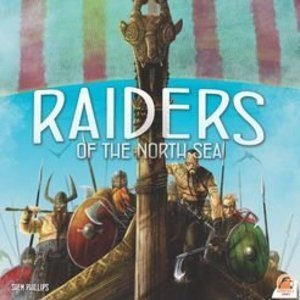
Raiders of the North Sea
Tabletop Game
Raiders of the North Sea is set in the central years of the Viking Age. As Viking warriors, players...
Boardgames vikinggames 2015Games
Entertainment Editor (1988 KP) rated Troyes in Tabletop Games
Mar 7, 2018
Now for Something Really Old: Troyes
I love this game. Let’s get that out of the way. I know a lot of people are claiming JASE (Just Another Soul-less Euro) with this one, and it certainly does not have that wonderful thematic feeling that some are looking for in their games. But, for me, it provides scads of really interesting decisions and strategies, while including dice (which I love when done well) and a variability that really amps up the replayability. I adore the art, on the cards as well as the board, and it scales well for player number.
Reviewer: Lucas Hedgren
Read the full review here: https://opinionatedgamers.com/2012/03/05/now-for-something-really-old-troyes/
Reviewer: Lucas Hedgren
Read the full review here: https://opinionatedgamers.com/2012/03/05/now-for-something-really-old-troyes/
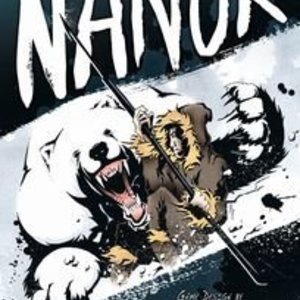
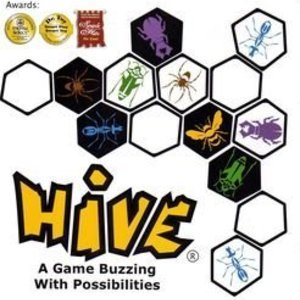
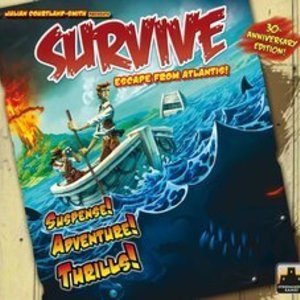

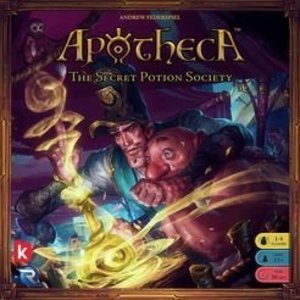
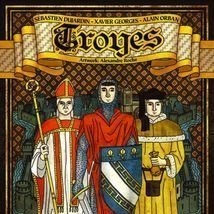
The Marinated Meeple (1853 KP) May 30, 2019